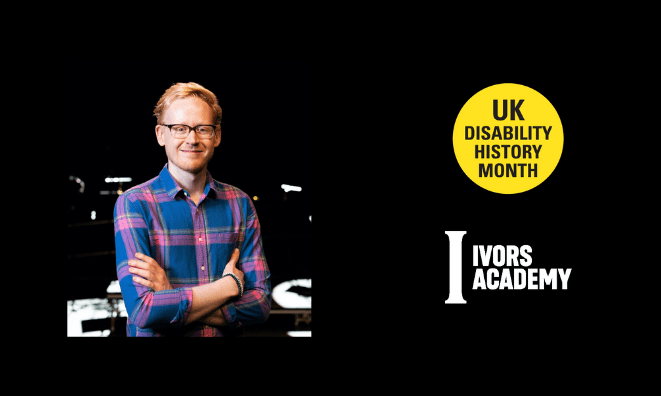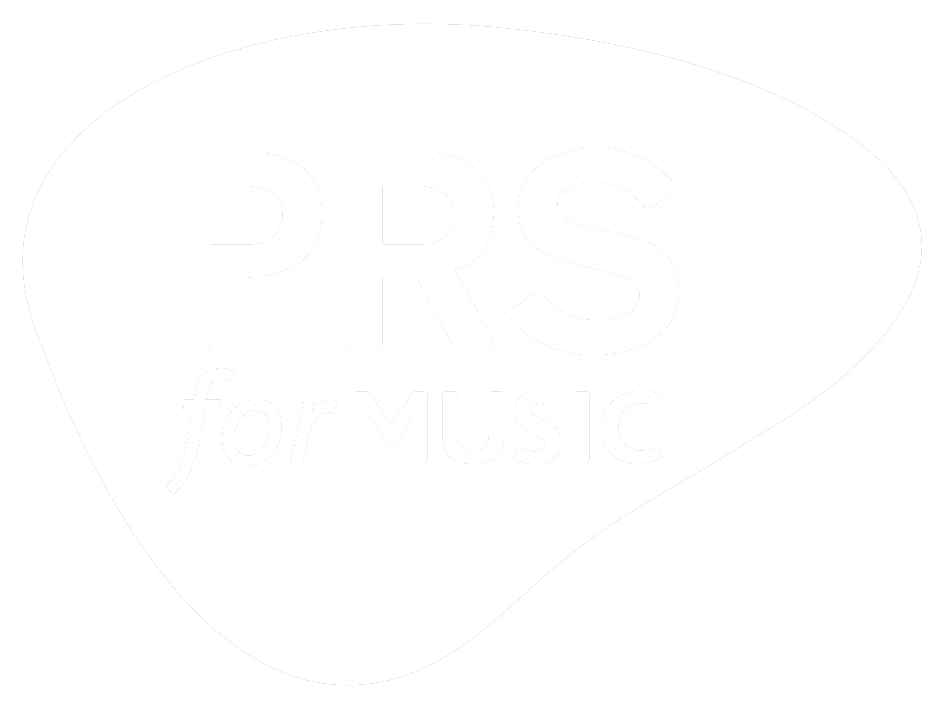Associate Music Director of the Bristol based Paraorchestra, Lloyd Coleman is a fearless and unapologetic champion for disabled creators and performers.
We are delighted to have the opportunity to dip into Lloyd’s creative journey…
…’I count myself extremely lucky’…
I’m often asked if my hearing and visual impairments, both of which I’ve lived with since birth, have made my life more difficult as a composer and musician. The honest answer is no. If anything, I’d say the opposite is true. The considerable sum of the music I’ve made, the places I’ve visited, the people I’ve met and the unforgettable experiences I’ve been fortunate enough to have throughout my life, have all been directly linked to my disabilities.
I count myself extremely lucky to have family, friends, teachers, mentors and colleagues who have encouraged me from a young age not to see my impairments as things to be worked against, but as a part of me which I needn’t hide away from others. My vision loss (caused by nystagmus) and severe bilateral hearing loss (diagnosed after a meningitis infection at a few weeks old) are conditions no more or less a part of me than the fact I am a Welsh guy in his late twenties with blonde hair and blue eyes; they are inseparable parts that make up the whole of who I am as a person.
My childhood is scattered with examples of how others influenced me to think in this way. My clarinet teacher at school was Jo Patton, who plays in the City of Birmingham Symphony Orchestra and is the most inquisitive and inspiring teacher any student could ask for. She and I spent hours discussing the nature of sound in our weekly lessons, and how we create different types of sound on the instrument. Jo made me realise that I could rely more on my sense of touch, using the ‘feel’ of the instrument beneath my fingers to tell me if I was making the right kind of sound for that passage of music, rather than relying on what I was picking up through my hearing aids alone. Another example would be my first ever piano teacher, Mrs Davies, who encouraged me from the offset to memorise longer passages of music than would normally be wise for a young learner, to keep me from straining my neck (or eyesight) in attempting to clearly see the music.
…’I’m drawn to these earthy, grounded textures…’
These two illustrations (and many more besides) don’t manifest themselves in an obvious way when I perform nowadays, but they do influence the way I think and have made my life so much easier as a practising musician. The way I play and judge the sound I produce is far more instinctive thanks to Jo, and I can memorise long passages of music no problem at all, thanks to Mrs Davies liberating me from losing my head in the music stand all those years ago. As a composer, I’ve noticed a lot the music I write is really bass-driven, so perhaps on an unconscious level I’m drawn to these earthy, grounded textures as my hearing loss is most acute in higher frequencies.
…’It’s a privilege to do my job’…
While I was studying at the Royal Academy of Music, I joined the newly-formed Paraorchestra, set up by the enterprising and visionary conductor Charles Hazlewood in 2012 to level the playing field for professional disabled musicians in a similar way to what the Paralympic movement has achieved in disability sport. Now based in Bristol, our eclectic and brilliant community of musicians – encompassing the whole musical spectrum of composers, songwriters, orchestral musicians, jazzers, singers, folk musicians, and electronic artists – continues to grow exponentially in size, scope and ambition. We’re reimagining what the orchestra looks like in the 21st century – ultimately a more dynamic and responsive ensemble that feels just at home blasting out the hits of Barry White to thousands of revellers on Glastonbury’s Park Stage as it does performing Steve Reich at the Southbank Centre. It’s a privilege to do my job as Paraorchestra’s Associate Music Director not only because of the amazing talent I work with every day, but because I know that for many of my disabled friends, disclosing their needs to prospective employers or colleagues would not be met with the same care and understanding that has been shown to me.
…’if you’re not convinced at the extent of the problem’…
By adopting the social model of disability, which identifies the external barriers that prevent a disabled person from participating (and not their impairment) as the issue, Paraorchestra is showing a new way for others in our sector to think about – both artistically and socially. I make no apology for saying this, and if you’re not convinced at the extent of the problem I describe, then ask yourself the last time you saw, say, a wheelchair user onstage in the string section of a symphony orchestra, or a blind tenor singing in a choir, or a DJ with cerebral palsy raising the roof at a nightclub?
Following a horrendously difficult year for our industry, the Paraorchestra team and I are more determined than ever to play our part in forging a recovery for live music that is truly inclusive of all disabled musicians.
The Ivors Academy would like to thank Lloyd for giving his time to write this blog and sharing his experiences and insights into his life as a music creator and performer.
Discover more about Lloyd Coleman
If you are a disabled musician and composer, the Paraorchestra are looking for new members to join in 2021. Discover more about The Paraorchestra and further opportunities.





